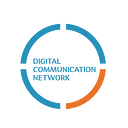Fake News Hunters — Making sense of online disinformation
Key points by Ioanna Georgia Eskiadi
In today’s webinar, we discussed the work of research team “Fake News Hunters”, a volunteer research team from Greece and Romania. “Fake News Hunters” is an innovative research team from Digital Communication Southeast Europe (DCN SEE) Hub, Forum Apulum and Peace Journalism Lab, Aristotle University of Thessaloniki. The team examined disinformation about COVID-19 that was spread on social media with the goal of monitoring, analyzing and comparing the disinformation narratives used in Romania and Greece. The research team started its work in March, during the lockdown period in both countries, in order to highlight fake news distributed through social media. Greece and Romania have similarities in public life, including the political systems, and the public communication sphere as members of the EU and the Southeast European region.
The aim of the “Fake News Hunters” is to analyze narratives of the most “popular” disinformation stories circulated on social media (i.e. Facebook) in both countries. The selection was made on the following criteria: number of reposts, likes, shares and comments. In addition, the accounts that circulated such stories were also analyzed. The results were part of a prototype effort in order to track down and analyze disinformation on social media. The effort expanded to include other countries, like Georgia, with the aim of analyzing the structure of disinformation and the main narratives used, thus leading to an assessment of the overall phenomenon.
During this period, “Fake News Hunters” had the chance to exchange, share and compare fake news and conspiracy theories between the two countries. In both countries, conspiracy theories included themes such as anti-mask, anti-government and anti-vaccines movements; 5G and Bill Gates; and lack of trust in doctors and scientists. Most of the time fake news was from far-right, pro-Russian and nationalist related pages and groups. Disinformation during this time took different approaches such as political, social, economic, and scientific. In Romania, disinformation was related often with the following statements: “Covid-19 is just a flu”; “it’s made up”; anti-government narratives; “political-medical” dictatorship; and acts of corruption. In Greece, disinformation was often related to refugees, Turkey-Greece relations, nationalism and government corruption.
In the future, “Fake News Hunters” is looking to integrate members from more countries in the research team, to see how fake news are developed during the second wave of COVID-19, and to monitor how elections in USA, Georgia and Romania influence disinformation narratives.
- Found and analyzed fake news related to COVID-19.
- The goal is to understand and witness the process of disinformation in real-time.
- Different disinformation narratives were present in both countries.
- Political disinformation like nationalist, anti-EU and anti-globalist messages.
- Fake News Hunters- a digital research team during COVID-19 pandemic.
- Greece and Romania have similarities in media systems as part of SE Europe.
- Discussion and presentation of issues in social media.
- Quick change of disinformation narratives from one month to another.
- Global pandemic is an opportunity for groups to promote their ideology.
The discussion is available on DCN SEE Hub Facebook Page.
Speakers
Diana Filimon is DCN Romania Community Leader and Forum Apulum President from Romania.
Nikos Panagiotou is Associate Professor and head of Peace Journalism Lab, Aristotle University of Thessaloniki, Digital Communication Network Southeast Europe Hub from Greece.
Erasmia Tsipou is a media professional and MA graduate from Aristotle University of Thessaloniki, Greece.
Ciprian Cucu is a member of Forum Apulum and Alba Iulia University from Romania.
Members of the team also include: Vlad Birău (RO), Alexandru Corpade (RO), Ana David (RO), Giannis Delimaris (GR), Ioanna Georgia Eskiadi (GR), Adrian Man (RO), and Adina Zoican (RO).
This event is co-organized by Digital Communication Network SouthEast Europe Hub (DCN SEE) and World Learning and is part of DCNSEE’s Ideas in Action — Digital Engagement, a series of virtual events launched in the context of the COVID-19 crisis. DCNSEE is supported by the U.S. Department of State’s Office of Citizen Exchanges.
This global event was designed and arranged with support from the South-Central Asia Alumni Network of the State Department exchange program Professional Fellows, implemented by World Learning.
DCN SOUTHEAST EUROPE HUB is a consortium of Aristotle University, Digital Communication Network, nonprofits, public and private organizations and companies involved in the fields of digital communication, social impact campaigns, technology, and innovation. It is a unique, interdisciplinary coalition tapping into the best talent and resources across Europe.
